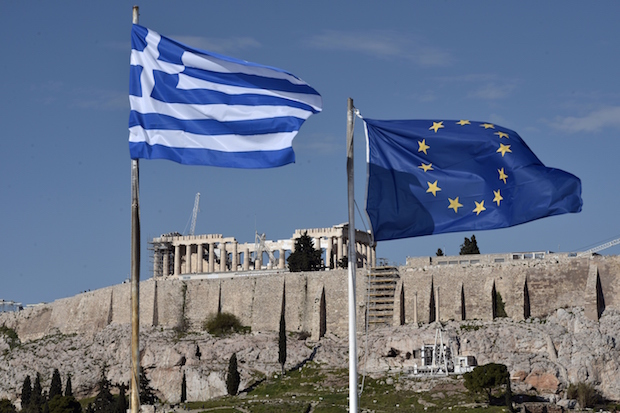In ten days time, Greece goes to the polls in what is, arguably, the most important election that will take place this year. For if — as looks likely — Syriza wins, then the Eurozone crisis will move into an acute and particularly dangerous phase.
Syriza are committed to a loosening of the terms of the Greek bailout deal. But, as I write in the magazine this week, Berlin, Frankfurt and Brussels are all adamant that there will be no easing of the fiscal straitjacket. Indeed, Berlin is making it clear that it would rather Greece leave the Euro than allow it to restructure its debts.
As always with Greece and the Euro, this isn’t really about this small economy on the EU’s south eastern edge. What the EU powers that be are really worried about is that if Syriza wins any concessions, then voters in other periphery countries will demand the same leniency. Already, Podemos, a radical leftist party founded less than 12 months ago, is leading in the Spanish polls ahead of elections there later this year Adding to this German reluctance to compromise is that Angela Merkel’s CDU party are worried that any concessions to Athens would put rocket boosters under the anti-single currency Alternative für Deutschland, which is currently at around 7 percent in the polls.
So, it is highly likely that the 2015 campaign will be fought against a backdrop of economic crisis in the Eurozone and talk of bank runs and debt defaults. If this happens, it will be — to be cynical — to the Tories’ advantage. It will push the economy up the political agenda, make Cameron and Osborne’s achievements in stabilising the situation here look more impressive by comparison and add salience to their warnings about the dangers of more government borrowing. It might also make voters think that, to use a phrase Gordon Brown used to see off another Miliband, that this is no time for a novice.







Comments